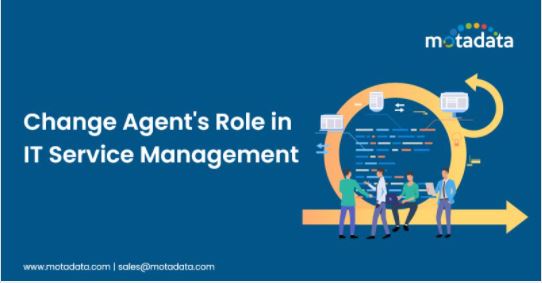Change agents oversee implementation of changes in an organization. They are the ones who make sure that the new strategy is being followed by everyone as they have the power to bring about change in an organization.
A successful change agent should have the following skills: knowledge, leadership skills, understanding of factors that are involved in bringing about change, and knowledge of different forms of change management.
Change agents are sometimes referred to as ‘change advocates’; these two terms are synonymous. There is another term that is often thrown in association with change agent is ‘change champion’. It is somewhat related, but the biggest difference being that a change champion is just a figurehead with no functional role in actually implementing the change/changes.
Why is a change agent important?
Change agents are an important part of any organization. They are the ones who facilitate change in the organization and help employees to come to terms with it. They help people accept change, work with it, and thrive in spite of it.
Here are a few reasons why change agents are important in an organization:
- They can shift behavior from one set to another set
- They encourage others to have new kinds of thoughts about a subject
- They offer different perspectives on how to take action
The role of a change agent is not easy because the changes they bring about are difficult for employees to navigate through. But their commitment to helping people embrace what’s new is what makes them so important.
How do you identify a change agent?
Change agents are people who have the experience and skills to initiate and implement change. They may or may not be in management.
The first question you should ask about a change agent is, “What do they want to change?”
Next, ask yourself how committed they are to the organization’s mission, values, and current operations? Finally, what kind of skill set does this person have?
Businesses sometimes hire change agents that are experts in their given field, but they also want them to have a fresh perspective on the business they are trying to revamp.
These people need to be able to see past what is in front of them, which means being proactive about new ideas and differentiating between what’s good for the company and what’s not. A change agent needs empathy, creativity, conviction, courage, communication skills, charisma, and curiosity.
What are the different types of change agents?
There are many types of change agents in an organization. Some are internal, some are external, some are structural, and some are policy driven. But what they all have in common is the idea to push for organizational changes by implementing new systems, policies, or ideas that will improve the current situation.
Change agent examples
One example of a type of change agent would be customers encouraging their brand’s social media team to experiment with new marketing techniques on Facebook and Twitter. This type would be an external change agent because they’re not part of the company’s marketing department, but they encourage them to do so, nonetheless.
Another example of a change agent would be IT service technicians implementing a self-service portal in their internal company’s website to streamline their service desk operations. This would be an example of an internal change agent type.
A change agent’s relationship with IT service management
ITSM is an enabler for change agents to bring about changes in an organization. It provides both theoretical and functional capabilities to a change agent in the form of a software solution. Motadata ServiceOps Service Desk includes a change management module, which is aligned with ITIL processes, that provides the means to track a change process stage-wise and allows for the appointment of a change advisory board.
The change management module has deep integration with other ITIL processes like problem management, incident management, knowledge management, and asset management. This allows for complete change-life-cycle management, where a change agent can commence a change request, track impact on associated IT assets, provision supervision from a CAB, and plan for contingencies.
You can try Motadata ServiceOps Service Desk change management for 30 days free of cost using the following link.
